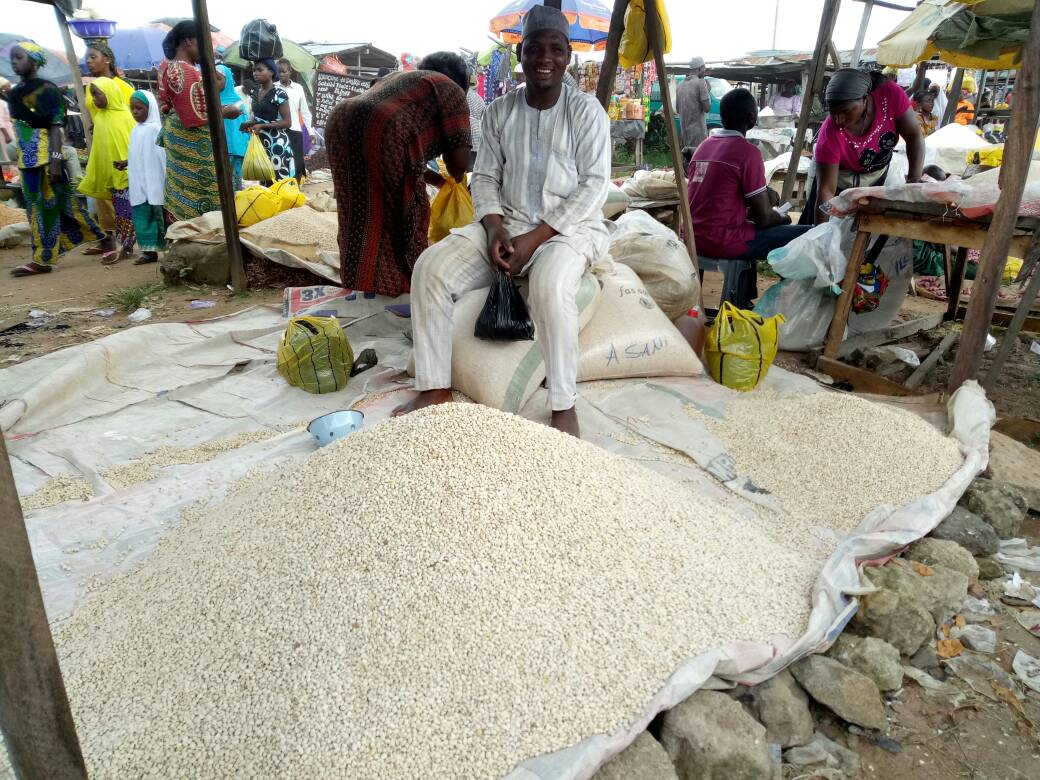
The National Agriculture Seed Council (NASC) has begun outreach to Nigerian seed companies in preparation for the 2018 commercialization of pest-resistant Bt cowpea and cotton.
A sensitization workshop organized in partnership with an association that represents private seed companies in Africa, the African Seed Trade Association (AFSTA), and with support from Seed Enterprises Entrepreneur Association of Nigeria (SEEDAN), African Agricultural Technology Foundation (AATF), Open Forum for Agricultural Biotechnology (OFAB), Africa Harvest and the National Biosafety Management Agency (NABDA) was staged in in Abuja recently to educate seed companies that are expected to play a major role in the distribution of genetically engineered seeds when the nation finally commercializes the two crops next year.
The agriculture industry has traditionally been supportive of technological advancement, particularly in the field of genetic crop improvement, said Dr, Philip Ojo, director-general of NASC, in his opening remarks. For decades, the industry has been mixing naturally the genetic traits of seeds in the search for particularly robust varieties through conventional plant breeding. Breeding has, however, evolved to engaging in genetic modification of crop varieties through non-conventional methods resulting in the production of genetically modified (GM) seeds.
Ojo said the meeting was very important for Nigeria because it was focused on educating major seed industry players from the public and private sector agencies on recent developments and technological advancements in agriculture, particularly as it relates to biotechnology and GMOs.
GM seeds are a significant step forward in the production of agricultural crops, Ojo said. GM seeds are seeds that have been modified to contain specific characteristics such as resistance to herbicides or resistance to pests. But the method of modification used with GM seeds varies from the conventional method in an important respect: the genes have not been modified over generations of cross-fertilization but rather inserted directly into the DNA of the seed.
Speaking on the benefits and concerns raised by GM seeds, Ojo noted that though GM seeds are a revolutionary technology in agriculture, neither full scale adoption nor full scale rejection was a viable option, stressing the need for stakeholders to be properly educated about the technology.
Certainly, GM seeds are a revolutionary technology in the agricultural industry, he said. Also, the potential benefits of these seeds promise to be considerable. But an uneducated acceptance of this technology by farmers should not be supported. The best approach is for every stakeholder to be properly educated about this technology and I think this is one thing [this] meeting will try to do.
Dr. Rose Gidado national coordinator of OFAB Nigeria, told journalists covering the event that farmers will have access to Bt cowpea and Bt cotton by 2018. She said that crop scientists in Nigeria had embarked on research to develop cowpea resistant to the pod borer and cotton resistant to the bollworm both destructive pests.
We want the seed companies in Nigeria to be involved and to be in charge of this so that our own farmers would have access to these seeds and so that there would not be monopoly of the seeds by any international company .and there is equity, justice in it, Gidado said.
Some farmers are already aware, she continued. Presently, the [Bt] cowpea and cotton are being managed by farmers. We have farmers management trials going on right now in the country.
Aghan Daniel, the communication officer of AFSTA, noted that Africa still remains a minor player in global seed trade, accounting for less than 2 percent of production. Modern biotechnology provides Africa with tools for trait improvements in crop germplasm that can lead to increased grain yields compatible with human and environmental welfare, he said.
It is important that farmers and consumers of crop products in Africa be given an opportunity to benefit from increased opportunities, productivity, efficiency and perhaps costs of food by having GM crops commercialized in African countries, he stated.
Prof. Mohammed Ishiyaku, principal investigator in the Pod Borer Resistant (PBR) Cowpea Project at the Institute for Agricultural Research (IAR) Ahmadu Bello University, delivered the keynote address entitled How relevant are GMOs to Nigeria and Africa?
He said that several constraints hampering Nigeria s quest for more affordable food can be mitigated only through the deployment of biotechnology, adding that GM seeds once deregulated are no different from conventional seeds.
Ishiyaku urged government agencies responsible for development, marketing/distribution and cultivation of GM seeds to streamline their roles if the anticipated benefits of biotechnology, as envisioned by government, are to be realized. He stressed that stakeholders, especially farmers, must take their proper position in determining the direction of seed policy if crop agriculture is to be profitable.
Nkechi Isaac is a Nigeria-based journalist and a 2016 Alliance for Science Global Leadership Fellow.
